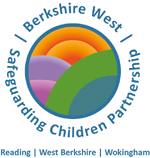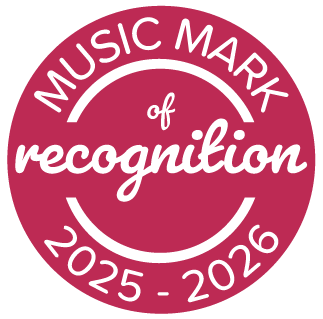Safeguarding
Safeguarding the welfare and well-being of our pupils, and protecting them from significant harm is our prime concern at Sulhamstead & Ufton Nervet CE Primary School. Safeguarding encompasses issues such as child protection, pupil health and safety, online safety, bullying/cyber bullying, appropriate medical provision, drugs and substance misuse. These areas have specific policies and guidance which can be found on our Policies page.
We foster a strong safeguarding culture and ensure that all our staff are aware of, and have the skills to deal with any child protection or safeguarding concerns. We have robust recruitment procedures and professional development programmes which ensure that all our staff uphold our strong vision and values, enabling children to flourish. Your child's safety and welfare overrides all other considerations. Schools are legally required to follow set procedures and the Local Authority requires the Headteacher to report any obvious or suspected cases of child abuse, which includes non-accidental injury, severe physical neglect, emotional abuse and/or sexual abuse.
This procedure is intended to protect children at risk. Our Child Protection Policy is available below.
Anyone who works in an unsupervised capacity with children, whether paid or voluntary, will require DBS (Disclosure & Barring Service) certification.
The school is committed to ensuring that all staff and adults with responsibility for children's welfare and safety are trained to deal with incidents involving aggressive behaviour and only use physical intervention as a last resort, in line with DfE and Local Authority guidance. If used at all, it will be in the context of a respectful, supportive relationship with the pupil. We will aim to ensure minimal risk of injury to pupils and staff.
If you are concerned about the welfare or well -being of a particular child, please do not hesitate to contact staff at the school in order to discuss your concerns further. Alternatively, you could contact either CAAS (Contact, Advice and Assessment service) or the NSPCC.
Safeguarding and Child Protection Team
Safeguarding Leads (ID 1148)
-
Miss Melissa KennedyDesignated Safeguarding Lead
Miss Melissa Kennedy
-
Mrs Sue PeopallDeputy Designated Safeguarding Lead
Mrs Sue Peopall
-
Mrs Vicki WadeDeputy Designated Safeguarding Lead
Mrs Vicki Wade
-
Mrs Rachel JeffcoatSafeguarding Governor
Mrs Rachel Jeffcoat
Mr Steve Martin is our named governor for whistleblowing.
Use of Digital/Video Images
The use of digital / video images plays an important part in learning activities. Pupils and members of staff may use digital cameras to record evidence of activities in lessons and out of school. These images may then be used in presentations in subsequent lessons.
Images may also be used to celebrate success through their publication in newsletters, on the school website and occasionally in the public media.
The school will comply with the requirements of the General Data Protection Regulations and request parents / carers permission before taking images of members of the school. We will also ensure that when images are published the children cannot be identified by the use of their names.
In accordance with guidance from the Information Commissioner’s Office, parents / carers are welcome to take videos and digital images of their children at school events for their own personal use (as such use is not covered by GDPR). To respect everyone’s privacy and in some cases protection, these images should not be published / made publicly available on social networking sites, nor should parents / carers comment on any activities involving other pupils in the digital / video images.
Online Safety
Online safety can be called 'internet safety', 'esafety' or 'web safety'. Online safety is often defined as the safe and responsible use of technology. This includes the use of the internet and also other means of communication using electronic media (eg text messages, gaming devices, email etc).
In practice, online safety is as much about behaviour as it is electronic security. Online safety in this context is classified into three areas of risk:
- Content: being exposed to illegal, inappropriate or harmful material
- Contact: being subjected to harmful online interaction with other users
- Conduct: personal online behaviour that increases the likelihood of, or causes, harm.
Supporting Documents
SUN Child Protection & Safeguarding Policy
Keeping Children Safe in Education 2025
Resources for Parents
Childline Website for under 12s
Advice for parents on cyberbullying
Young People and Mental Health
NSPCC/O2 online - this helpline provides practical, technical advice including parental controls on electronic devices, adjusting privacy settings, understanding social networks and information about online gaming - 0808 800 5002
If you are concerned about a child outside of school hours
We all have a responsibility to keep children and young people safe from harm. If you believe a child or young person is at immediate risk of serious harm or injury, or you believe a criminal offence has been committed, call the police on 999.
If you believe a child or young person is at risk of significant harm, neglect or injury, report your concerns to CAAS on 01635 503090 or child@westberks.gov.uk .
If you have significant safeguarding concerns about someone who is working or volunteering with children and young people, contact the Local Authority Designated Officer (LADO) for advice LADO.LADO@westberks.gov.uk.







